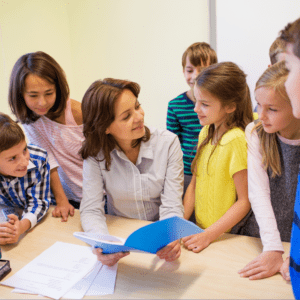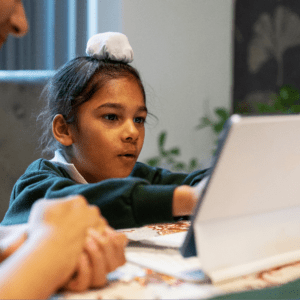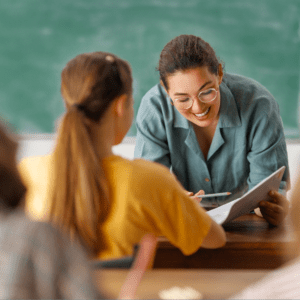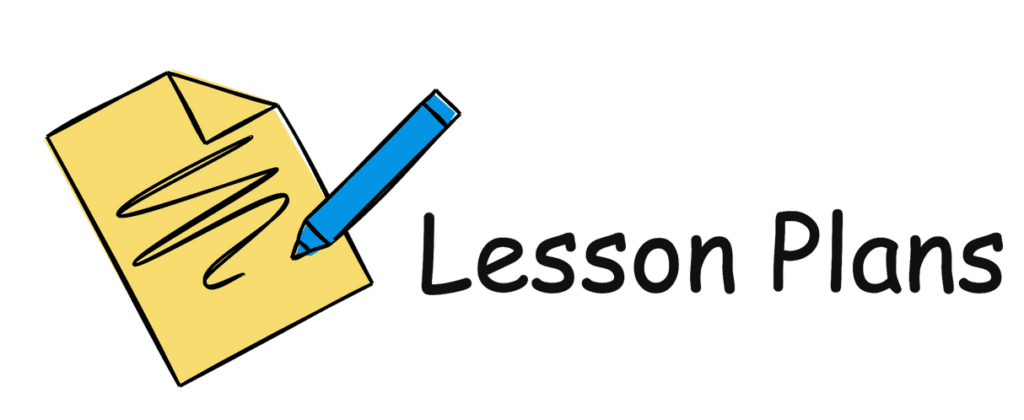Strategies for Crafting Lesson Plans
- Beginner Level:
- Intermediate Level:
- Experienced Level:
- New Teacher
- Experienced Teacher
The Importance of Lesson Plans
Lesson plans serve as a compass that guides teachers in delivering organized and meaningful instruction. They ensure that essential skills, learning objectives, and curriculum components are covered. Moreover, well-structured lesson plans make it seamless for relief teachers to take over the classroom if needed, maintaining instructional continuity.
Strategies for Crafting Lesson Plans
Beginner Level:
- Clear Objectives: Set specific learning objectives that align with curriculum goals. Identify what you want students to know, understand, and be able to do by the end of the lesson.
- Structured Format: Use a consistent format with sections like objectives, materials, introduction, activities, assessment, and closure.
- Engagement Strategies: Incorporate diverse instructional strategies to engage different learning styles, such as group discussions, visual aids, or hands-on activities.
Intermediate Level:
- Differentiation: Tailor activities to cater to diverse student needs. Include extension tasks for advanced learners and additional support for struggling students.
- Assessment Strategies: Integrate formative assessments throughout the lesson to gauge student understanding. This can be quizzes, discussions, or group work.
- Technology Integration: Integrate technology tools that enhance learning experiences, such as interactive simulations or digital resources.
Experienced Level:
- Real-world Application: Design activities that relate to real-life scenarios, connecting classroom learning to practical situations.
- Student-Centered Approach: Foster student agency by incorporating opportunities for self-directed exploration and inquiry-based learning.
- Reflection and Adaptation: Incorporate a section for post-lesson reflection, where you analyze what went well and identify areas for improvement in future lessons.
Lesson Plan Examples
New Teacher
- Objective: Introduce students to basic fractions.
- Materials: Fraction manipulatives, whiteboard, markers.
- Introduction: Engage students with a relatable scenario involving pizza slices.
- Activities: Group work using fraction manipulatives to practice adding and subtracting fractions.
- Assessment: Quick quiz at the end of the class.
- Closure: Review key concepts and provide a preview of the next lesson.
Experienced Teacher
- Objective: Analyze the impact of historical events on society.
- Materials: Primary source documents, multimedia resources.
- Introduction: Pose a thought-provoking question related to historical events.
- Activities: Small group discussions analyzing primary sources and creating presentations.
- Assessment: Peer review of presentations and individual reflections.
- Closure: Facilitate a class discussion on the broader implications of historical events.
Conclusion
Effective lesson planning is an art that evolves with experience. It ensures that teaching is purposeful, engaging, and aligned with educational goals. By tailoring lesson plans to your career stage and employing strategies that promote student engagement and understanding, educators can create impactful learning experiences that empower their students to succeed.
Frequently Asked Questions About Lesson Planning
- Why is lesson planning important for teachers?
Lesson planning provides a roadmap for teachers to organize their instruction, ensuring that learning objectives are met, curriculum requirements are covered, and students are engaged. It also facilitates smooth classroom management and allows for effective assessment of student progress.
- What should a well-structured lesson plan include?
A comprehensive lesson plan typically includes clear learning objectives, a list of materials needed, an engaging introduction, interactive activities, assessment strategies, and a meaningful closure.
- How can lesson plans benefit substitute teachers?
Well-crafted lesson plans make it easier for substitute teachers to seamlessly step into your role. Clear instructions, organized activities, and outlined objectives help substitute teachers maintain the learning flow in your absence.
- How can I make my lesson plans more engaging for students?
Incorporate diverse instructional strategies, interactive activities, technology tools, and real-world applications to cater to various learning styles and make lessons more engaging.
- How can I ensure that students act on the feedback I provide?
Encourage student self-assessment and reflection. Set specific goals for improvement based on your feedback, and revisit those goals periodically. Provide ongoing support and praise for their progress.
- Why should I share lesson plans with parents?
Sharing lesson plans with parents fosters transparency and opens channels for meaningful conversations about their child’s learning. It helps parents understand the curriculum, learning objectives, and ways they can support their child at home.
- What is reflective teaching, and why is it important?
Reflective teaching involves self-assessment and critical analysis of your instructional practices. It helps you identify strengths, areas for improvement, and adapt your teaching methods to better meet students’ needs.
- How can I make my reflections on teaching meaningful and regular?
Set aside dedicated time for reflection, either daily or weekly. Use a journal or digital platform to record observations, successes, challenges, and strategies. Consider seeking feedback from peers or mentors to gain different perspectives.
- How can I effectively incorporate technology into my lesson plans?
Integrate technology tools that enhance learning experiences, such as interactive simulations, multimedia presentations, and online resources. Ensure that technology supports the learning objectives and engages students.
- Can I use the same lesson plan format throughout my teaching career?
While your basic lesson plan structure might remain consistent, adapting and refining your approach based on your experience and changing classroom needs is essential for continuous improvement.
Remember, lesson planning is an evolving process that grows with your teaching journey. By staying open to experimentation and incorporating feedback from both students and colleagues, you can refine your lesson planning skills and provide enriching educational experiences for your students.
Elise is an enthusiastic and passionate Australian teacher who is on a mission to inspire and support fellow educators. With over a decade of experience in the classroom, Elise leverages her expertise and creativity to provide valuable insights and resources through her blog. Whether you're looking for innovative lesson ideas, effective teaching strategies, or just a dose of inspiration, Elise has got you covered.
Related Posts
7 Simple Strategies for Strong Student-Teacher Relationships
Elise Phillips · December 5, 2023 · 0 Comment
Getting to know your students on a personal level is the first step towards building strong relationships. Show genuine interest in their lives outside the classroom.

Connecting Learning to Real-World Contexts: Strategies for Teachers
Elise Phillips · December 2, 2023 · 0 Comment
When students see the relevance of their classroom lessons to their everyday lives, they are more likely to be motivated, engaged, and retain information.
 is using a tablet computer for school." width="300" height="300" />
is using a tablet computer for school." width="300" height="300" />
Encouraging Active Involvement in Learning: Strategies for Teachers
Elise Phillips · December 1, 2023 · 0 Comment
Active learning benefits students by improving retention of information, enhancing critical thinking skills, and encouraging a deeper understanding of the subject matter.

Collaborative and Cooperative Learning: A Guide for Teachers
Elise Phillips · November 30, 2023 · 0 Comment
These methods encourage students to work together, share ideas, and actively participate in their education.

Experiential Teaching: Role-Play and Simulations in Teaching
Elise Phillips · November 29, 2023 · 0 Comment
These interactive techniques allow students to immerse themselves in practical, real-world scenarios, thereby deepening their understanding and retention of key concepts.

Project-Based Learning Activities: A Guide for Teachers
Elise Phillips · November 28, 2023 · 0 Comment
Project-Based Learning is a student-centered pedagogy that involves a dynamic approach to teaching, where students explore real-world problems or challenges.




 is using a tablet computer for school." width="300" height="300" />
is using a tablet computer for school." width="300" height="300" />

